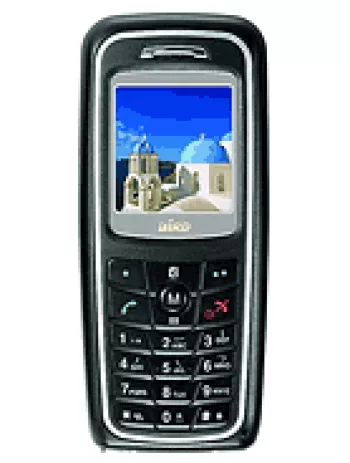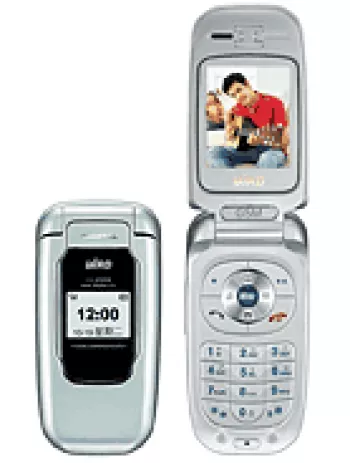
Overview of the Bird V09
The Bird V09 is a feature phone that was introduced in Q2 of 2004. Known for its reliability and simplicity, the phone gained a small following during its active years. Despite its basic functions compared to modern smartphones, the Bird V09 offered essential mobile capabilities, catering to users who required a straightforward communication device.
Design and Build
The Bird V09 features a compact form factor with dimensions measuring 83 x 43 x 20 mm, making it easily portable and comfortable to hold. Weighing only 75 g, the device was lightweight, appealing to users who preferred carrying a phone without any added bulk. It supported a Mini-SIM card, a standard during the time of its release. The phone was available in two colors: Red and Blue Grey, adding a touch of personalization for the user.
Display
Equipped with a CSTN display, the Bird V09 supported 65K colors and featured a resolution of 128 x 160 pixels. Although the screen size is not specified, it provided decent visibility for basic operations like viewing contacts, call logs, and engaging with simple games. The display quality, while not high-definition, was sufficient for the non-demanding tasks typical of feature phones at the time.
Network and Connectivity
The Bird V09 operated on the GSM network, with 2G bands for GSM 900/1800. However, it did not offer advanced data connectivity options such as GPRS or EDGE, which were beginning to emerge during its era. The lack of WLAN, Bluetooth, and positioning further emphasized its role as a standard communication device, focused mainly on calling and texting. The absence of a USB port also highlights its minimalistic approach.
Memory and Storage
The phone did not feature a card slot, meaning it operated entirely on internal memory. It supported a phonebook capacity of 500 entries, which was adequate for managing contacts. For call management, the Bird V09 allowed users to store records of 20 dialed, 20 received, and 20 missed calls. This setup underscored the phone's purpose as a straightforward communication tool.
Sound and Ringtones
The device offered vibration alert types and supported downloadable polyphonic ringtones. It did not include a loudspeaker or a 3.5mm headphone jack, which limited its multimedia capabilities. Consequently, the Bird V09 relied heavily on its vibration and the limited range of ringtones for alerts and notifications.
Battery Life
The Bird V09 was powered by a removable Li-Ion battery with a capacity of 670mAh. While it might seem modest by today's standards, this was sufficient for a feature phone given its low power consumption and limited functions. The removable nature of the battery allowed users to replace it easily if battery life diminished over time.
Usability and Features
Targeting users seeking simplicity, the Bird V09 supported SMS messaging and included a few pre-installed games to add a small element of entertainment. The absence of advanced features such as Java compatibility or a web browser further affirmed its status as a basic phone, primarily designed for communication. The device's user interface was intuitive, focusing on ease of use and functionality over intricacy.
Conclusion
The Bird V09 is a testament to the straightforward design philosophy of feature phones in the early 2000s. Its focus on calling and messaging, combined with a durable and portable design, made it a practical choice for users at the time. The discontinued status of the Bird V09 reflects the inevitable march toward more advanced and versatile smartphones, yet it remains a memorable chapter for those who valued simplicity in mobile technology.
Key Features of Bird V09
- Compact and Lightweight Design: Dimensions of 83 x 43 x 20 mm and weight of 75 g make it easy to carry.
- Display Features: CSTN screen with 65K colors and a resolution of 128 x 160 pixels.
- Ample Phonebook Storage: Capacity to store up to 500 contacts.
- Basic Call Management: Records of 20 dialed, 20 received, and 20 missed calls.
- Customizable Alert Types: Supports vibration and downloadable polyphonic ringtones.
- Removable Battery: Equipped with a removable Li-Ion battery for easy replacement.
- Color Options: Available in Red and Blue Grey.
Disadvantages of Bird V09
- No EDGE support for faster data transfer.
- Discontinued model, may be difficult to find support or parts.
- Limited display resolution with CSTN and only 65K colors.
- No expandable memory card slot, limiting storage capacity.
- No camera available on the device.
- Lack of a loudspeaker and 3.5mm audio jack for audio output.
- No support for wireless connectivity options like WLAN or Bluetooth.
- No built-in GPS for positioning services.
- No FM Radio to listen to broadcast stations.
- Limited communication features, only supports SMS messaging.
- Absence of Java support for additional applications.

View Also
More Phones
All Rights Reserved +14267 Phones © Mobilawy 2025

























